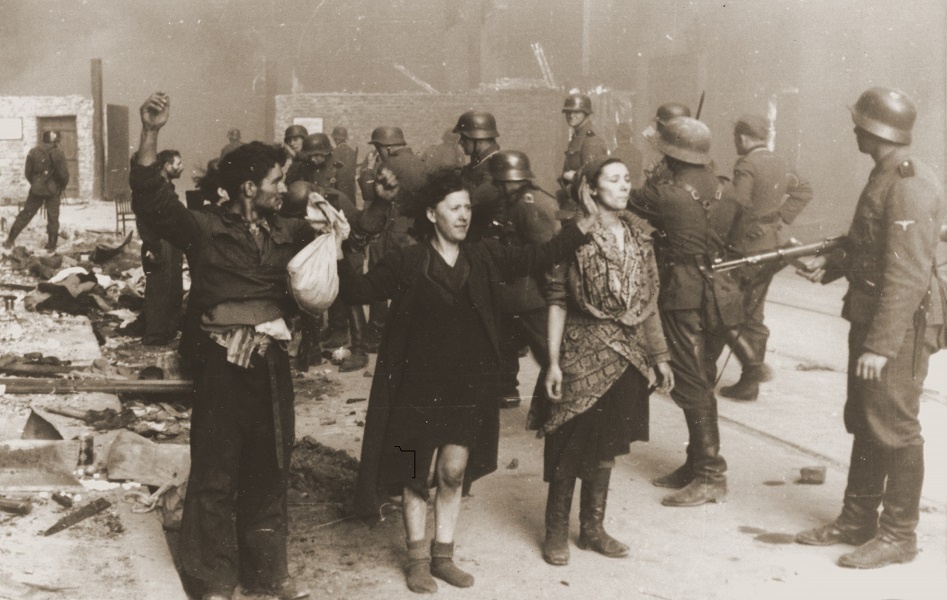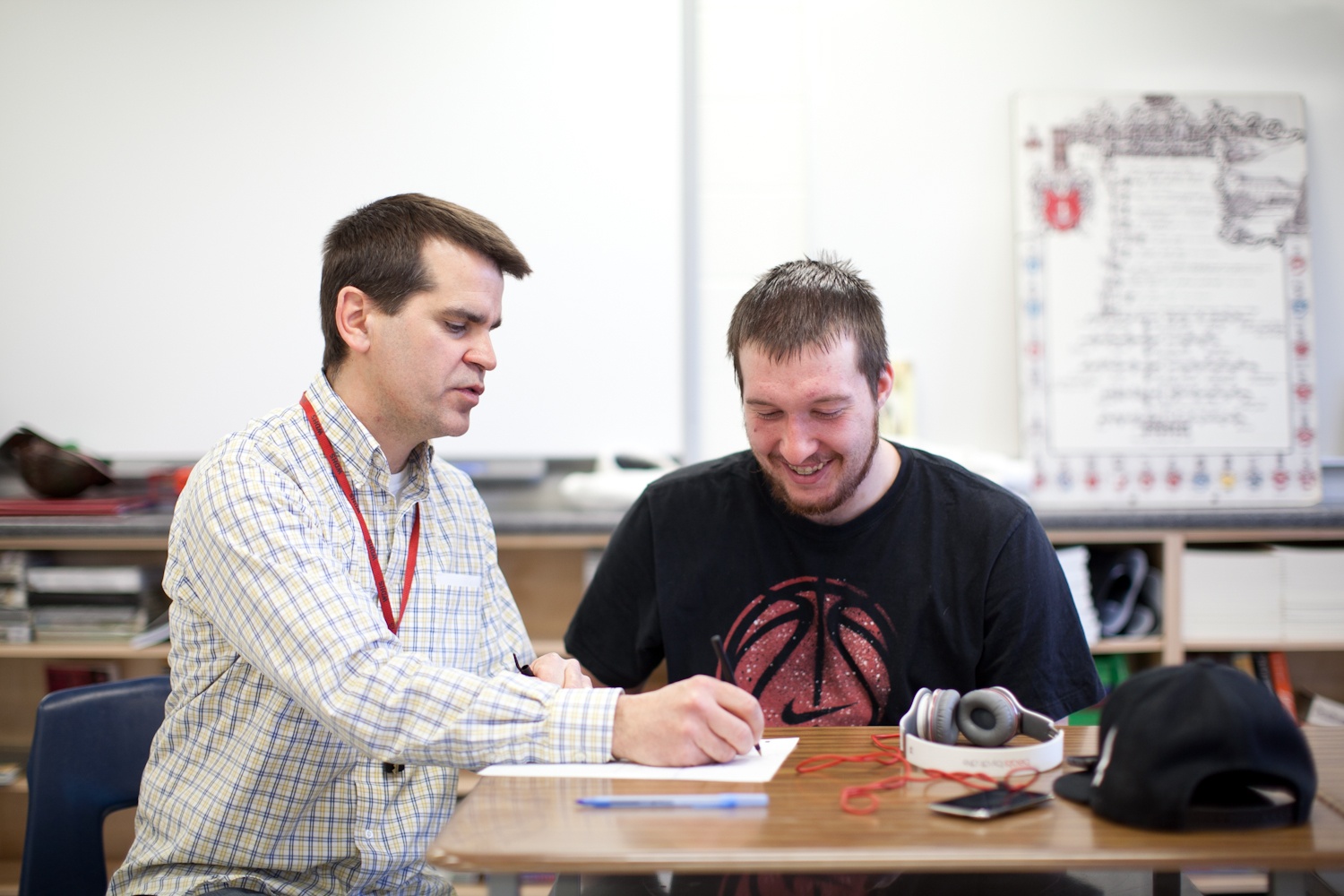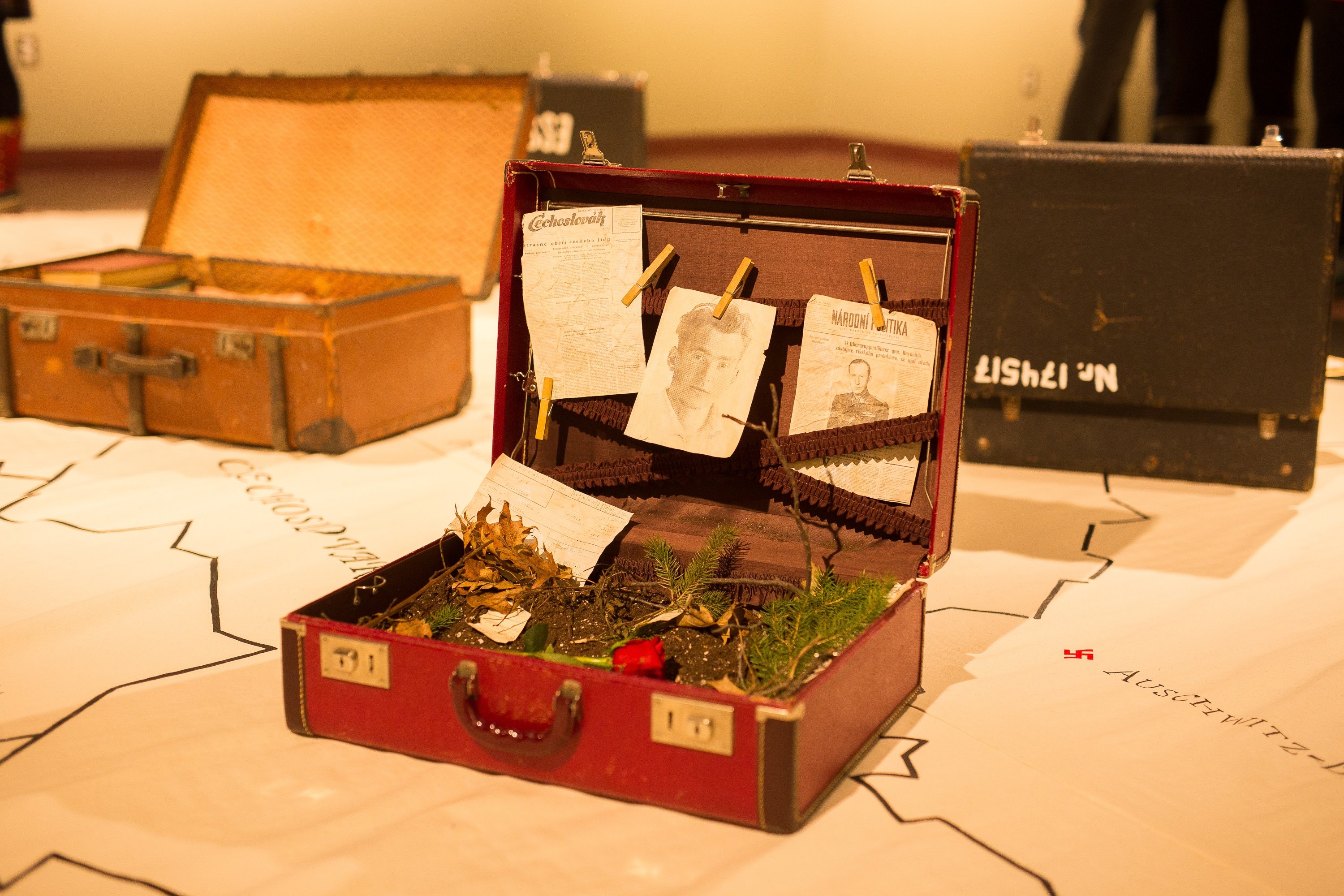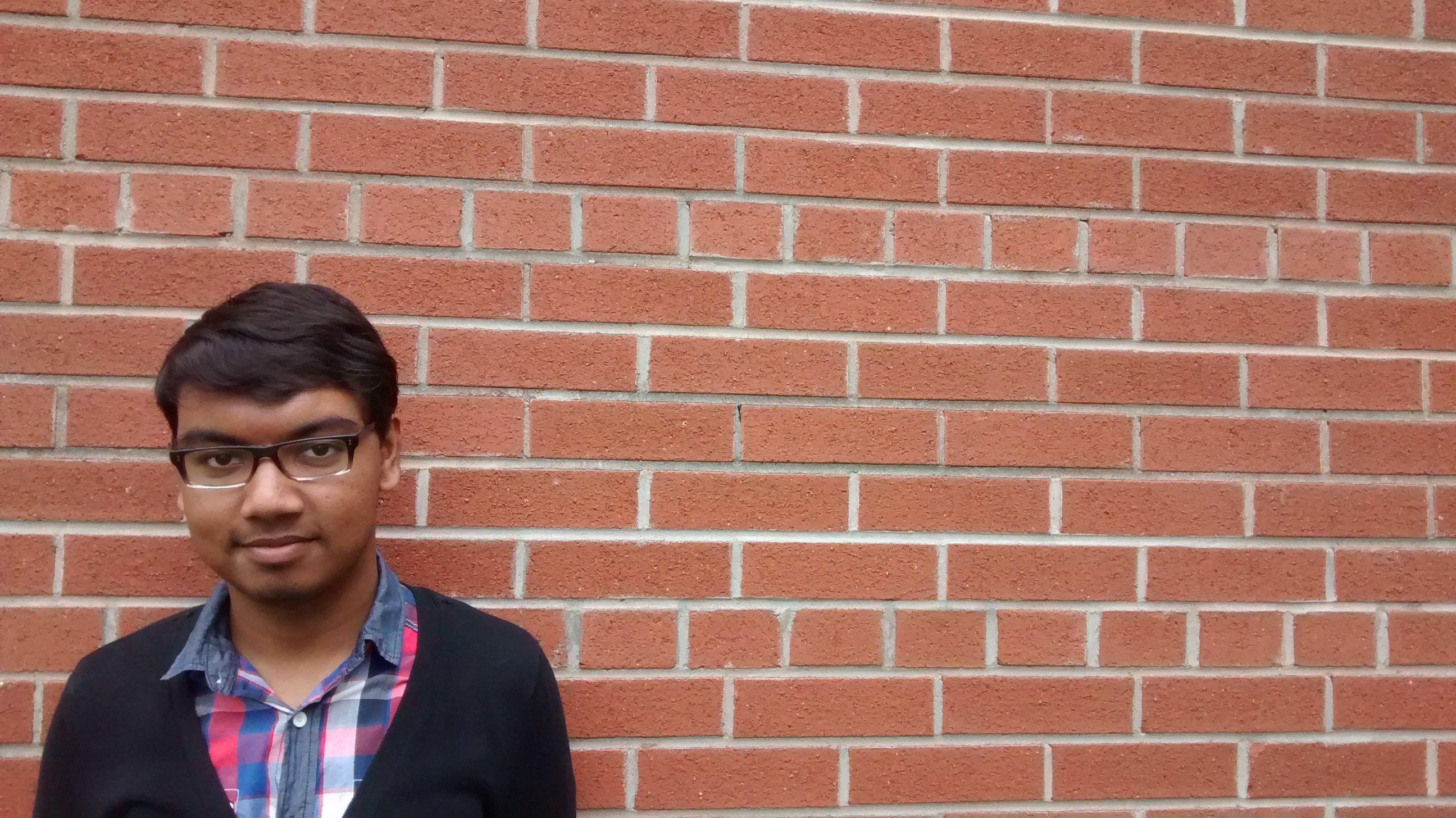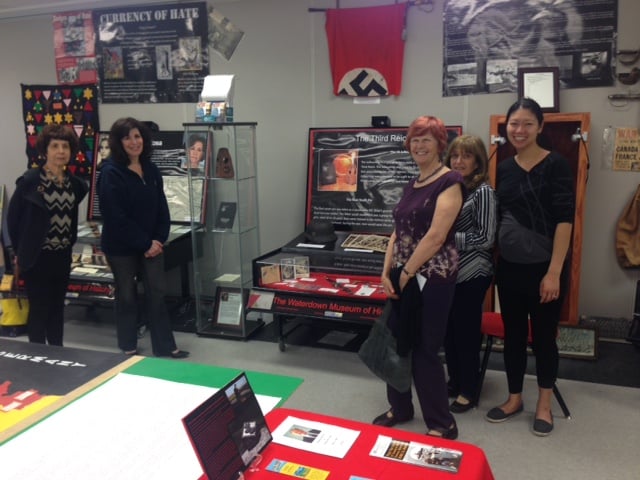In 2015, the House of Commons designated April as Genocide Remembrance, Condemnation, and Prevention Month and committed to “[honouring] the memory of the victims of genocide and reflect on the root causes of these tragedies, so that they never happen again.”
Resources for Genocide Awareness Month and Beyond
Posted by Facing History and Ourselves Canada on March 30, 2022
Topics: Armenian Genocide, Facing History Resources, Genocide/Collective Violence, Teaching Resources, genocide, Genocide and Crimes Against Humanities Course, Inside a Genocide Classroom
This blog by Ontario educator, Michael Anthony, explores his journey learning and teaching about The Holodomor as part of the Genocide and Crimes Against Humanity course and provides helpful resources to integrate into your classroom.
Topics: Genocide/Collective Violence, Teaching Resources, genocide, Genocide and Crimes Against Humanities Course
A Valentine's Day Love Letter to Fellow Educators (and to Facing History and Ourselves)
Posted by Lindsay Hutchison on February 13, 2020
Over the past number of years, I have developed quite a lot of love for Facing History and Ourselves. So much so that I thought this Valentine’s Day I would share my love to other educators by sharing five incredible resources, approaches and strategies that Facing History and Ourselves has to offer that I hope will be a gift to fellow teachers and to your classrooms.
Topics: Students, Human Rights, Facing History Resources, Teaching Resources, Teachers, Genocide and Crimes Against Humanities Course
No PowerPoints, No Prezis: A Creative Genocide Course Inquiry Project
Posted by Lindsay Hutchison on November 19, 2019
In this blog post, British Columbia educator Lindsay Hutchison shares how she engaged her Genocide 12 course students in an inquiry project on resistance during the Holocaust. She walks us through the design and reflection behind this project and shares her assignment outline and several of the students' creative responses.
Topics: Genocide/Collective Violence, Holocaust Education, resistance, Genocide and Crimes Against Humanities Course, Holocaust and Human Behaviour, Inquiry, Creative
“Those who do not learn history are doomed to repeat it.” How many of us have heard this quote or a variation of it? Sayings like these are repeated so often nowadays that they have lost meaning. People will complain, “I don’t need you to lecture me, I already know all this,” “The past is the past, leave it behind where it belongs,” or a blatant dismissal from those who are so cemented in the now, that they refuse to see the truth right in front of them.
Topics: Student Voices, Choosing to Participate, Armenian Genocide, Students, Facing History and Ourselves, Holocaust Education, Rwanda, Student Work, Genocide and Crimes Against Humanities Course, Equity in Education, Facing Canada
A collaboration between Facing History and Ourselves and the Azrieli Foundation's Holocaust Survivor Memoirs Program, first posted on Azrieli Memoirs' Blog page.
Words referencing mass atrocities of the past, such as fascist, racist, Nazi, genocide and Holocaust, carry deep historical meaning, yet these words are often misused in reference to contemporary events. Using these words too casually not only diminishes the meaning of the words themselves, but also diminishes the events that the words represent. In this blog post, we look to remember the meaning of the term genocide and the conditions that drove a lawyer named Raphael Lemkin to coin this term to describe a horrific crime — a crime that prior to 1944 lacked a name and legal repercussions.
Topics: Survivor Testimony, genocide, Genocide and Crimes Against Humanities Course, Holocaust and Human Behaviour, Grade 10 History, Azrieli Foundation Memoirs
An Award Winning Initiative for Engaging Students and Communities in Learning History
Posted by Gillian Aitken on January 2, 2018
We work with so many amazing educators who give their students exceptional learning experiences. For this blog, we sat down with history teacher and 2017 Governor General's Award for Excellence in Teaching History Award winner Rob Flosman to find out what he has learned about engaging students and communities in learning history through building a classroom museum, the Waterdown Museum of History.
Topics: Innovative Classrooms, Museum Studies, Holocaust Education, Margot Stern Strom Innovation Grants, Canadian History, Culturally Responsive and Relevant Pedagogy, classroom lesson, Genocide and Crimes Against Humanities Course, CHG
Beyond Anne Frank: Using an arts-integrated approach to explore victim experiences during the Holocaust
Posted by Michael Pitblado on March 24, 2017
The students in my Genocide and Crimes Against Humanity course gained new and meaningful perspectives on what life was like for those targeted for extermination by the Nazi regime by creating a unique and innovative art exhibition that explored the lives of young victims of the Holocaust.
Topics: Art, Identity, Holocaust, Salvaged Pages, Genocide and Crimes Against Humanities Course, Inside a Genocide Classroom, Anne Frank
As an educator I often wonder what students remember once they have left my classroom. It is my hope that when they leave they take with them critical thinking skills, the ability to engage in difficult conversations, and a deeper understanding of how we are all connected - in the past, present, and future. Through all of my various attempts to learn from my students what they are getting out of their Facing History and Ourselves class, I have found that the best way to find out what students are learning is to ask them.
Each year, at the end of our grade 11 elective Facing History and Ourselves course, Genocide and Crimes Against Humanity, we take the time to reflect on our learning and ourselves. This year a group of students from my classroom chose to participate in a reflective interview process in lieu of their final journal entry assignment, and agreed to share their reflections.
Below, as inspired by the popular blog Humans of New York and the Facing History project, Humans of the Woodlands, you'll have the chance to glimpse into the classroom learning and life of a few of my Facing History and Ourselves students.
Topics: Choosing to Participate, Identity, History, Holocaust Education, Memorial, We and They, Culturally Responsive and Relevant Pedagogy, legacy, Genocide and Crimes Against Humanities Course, Holocaust and Human Behaviour, Inside a Genocide Classroom, Social Justice, Personal history, reflection
In 2013, Waterdown District High School teacher Robert Flosman applied for and won a Margot Stern Strom Innovation Grant to create a Museum of History in his classroom as a way to engage students deeply and differently in the study of history. In November 2014, he wrote a post for this blog describing his museum. One year later, Rob has more to tell us about the museum Facing History and Ourselves’ grant made possible.
Topics: History, Canada, Innovative Classrooms, Museum Studies, Margot Stern Strom Innovation Grants, Memorial, Genocide and Crimes Against Humanities Course

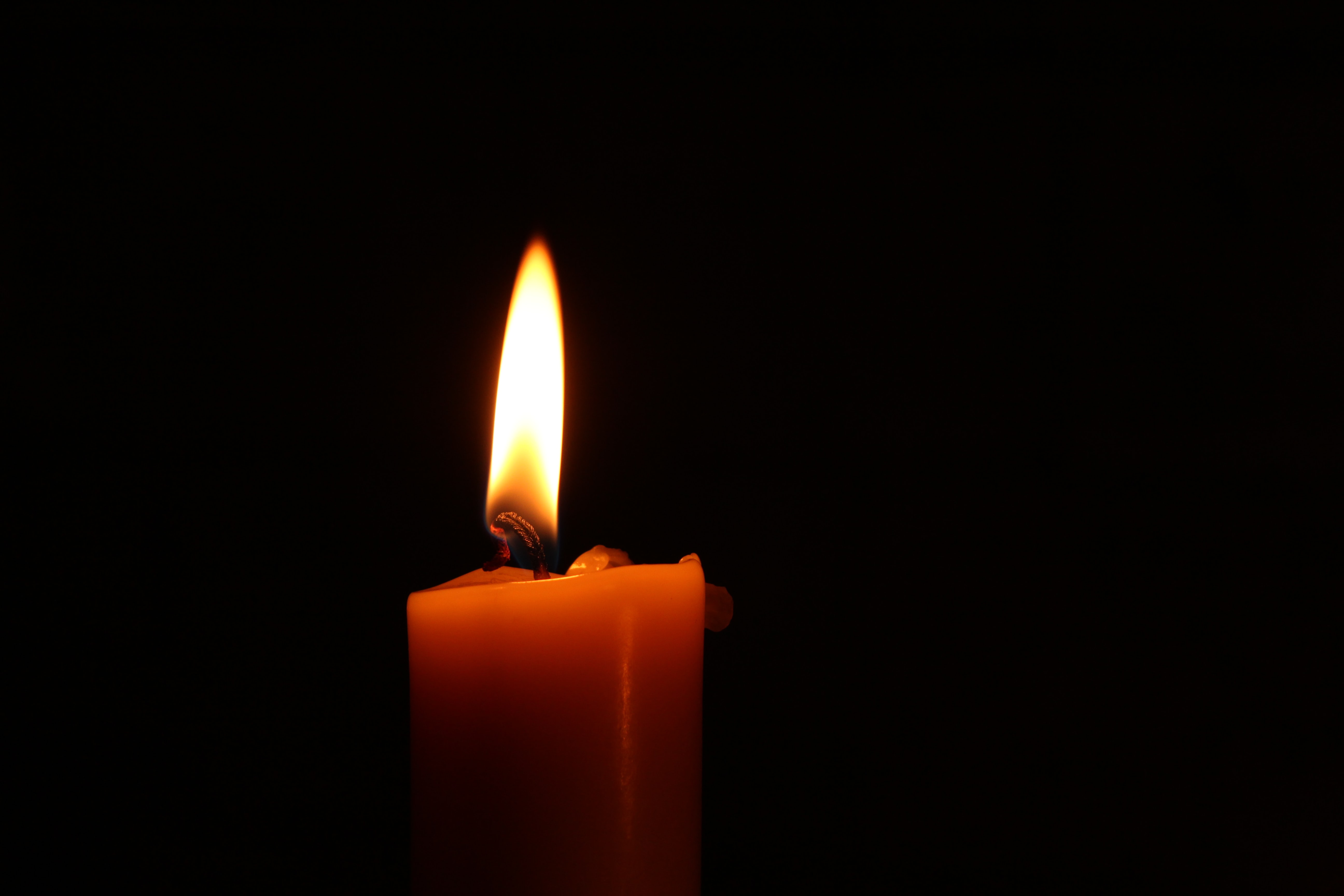
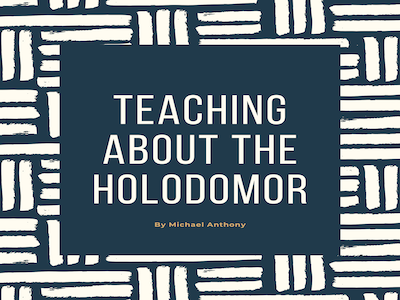
.png)


